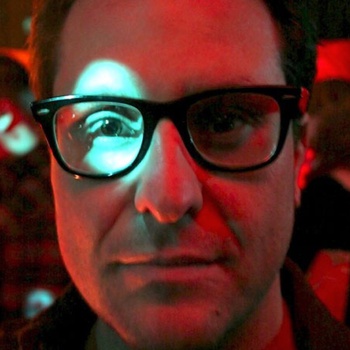Coding Ourselves/Coding Others
D. Fox Harrell
May 5, 02015
Through building and analyzing systems, D. Fox Harrell's research investigates how the computer can be used to express cultural meanings through data-structures and algorithms. In his talk he showed that identities are complicated by their intersection with technologies like social networking, gaming, and virtual worlds. Data-structures and algorithms in video games and social media can perpetuate persistent issues of class, gender, sex, race, and ethnicity. They also create dynamic constructions of social categories, metaphorical thought, body language, and fashion. He showed work from his team at the Imagination, Computation, and Expression Laboratory (ICE Lab) at MIT which provides alternatives that can evolve those industry norms.
Dr. Harrell is an associate professor of digital media in the Comparative Media Studies Program and the Computer Science and Artificial Intelligence Laboratory at MIT. He holds a PhD in computer science and cognitive science from the University of California, San Diego. In 02010 he was awarded a National Science Foundation (NSF) CAREER Award for his project "Computing for Advanced Identity Representation." He was a 02014-15 fellow at the Center for Advanced Studies in the Behavioral Sciences (CASBS) at Stanford, co-sponsors of this talk.
Upcoming Talks
Videos

Johanna Hoffman
Speculative Futures: Design Approaches to Foster Resilience and Co-create the Cities We Need
October 12, 02022

Creon Levit
Space Debris and The Kessler Syndrome: A Possible Future Trapped on Earth
April 26, 02022

Brittany Cox
Horological Heritage: Generating bird song, magic, and music through mechanism
August 20, 02019

Elizabeth Lonsdorf
Growing Up Ape: The Long-term Science of Studying Our Closest Living Relatives
April 30, 02019

James Holland Jones
The Science of Climate Fiction: Can Stories Lead to Social Action?
January 29, 02019

Kevin Kelly, Stewart Brand, Alexander Rose
Siberia: A Journey to the Mammoth Steppe
January 22, 02019

Caroline Winterer
The Art and Science of Deep Time:
Conceiving the Inconceivable in the 19th Century
September 4, 02018

Esther Dyson
The Short Now: What Addiction, Day Trading, and Most of Society’s Ills Have in Common
July 17, 02018

Hannu Rajaniemi
The Spirit Singularity: Science and the Afterlife at the Turn of the 20th Century
July 10, 02018

Shahzeen Attari
Facts, Feelings and Stories: How to Motivate Action on Climate Change
June 26, 02018

Renée DiResta
Disinformation Technology: How Online Propaganda Campaigns Are Influencing Us
April 10, 02018

Scott Kildall
Art Thinking + Technology: A Personal Journey of Expanding Space and Time
August 15, 02017

Miles Traer
The Geological Reveal: How the Rock Record Shows Our Relationship to the Natural World
June 27, 02017

Andrew Lakoff
How We Became “Unprepared”:
Imagining Catastrophe from the Cold War to Bird Flu
May 30, 02017

Jennifer Petersen
Why Freedom of Speech Is More Than Speech:
Expressions in Media and Code
April 18, 02017

Tara Behrend
The Psychology of Surveillance:
How Being Watched Changes Our Behavior
February 28, 02017

Ben Novak
The Next Flight of the Passenger Pigeon: Engineering Nature's Engineers
September 27, 02016









































































